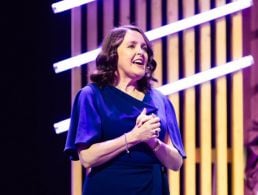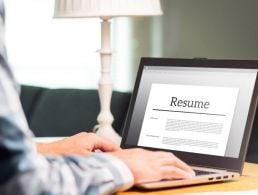With so many graduate programmes to choose from, how do you know which one is right for you?
At this time of year, there’s a lot of talk about graduate programmes as top companies come out in their droves to court bright new talent from the graduate pool.
But what do graduates need to know about these programmes? How can they go about choosing the right one? Why would they even choose a graduate programme when there are so many alternatives to consider?
Katie Brennan is a digital marketing consultant at Accenture Interactive. Four years ago, she started in the company as part of its graduate programme.
Shortly after joining, Brennan got involved with its university recruiting team and Girls in STEM. She is now the university action team lead.
Brennan said that when it comes to choosing the right graduate programme, it’s important to think about what you like doing. “Not at a subject level, but the smaller things you enjoy. Skills like research, problem-solving, ideation, workshops and client relationship building,” she said.
“Once you know the core things you enjoy, look for programmes that will offer you the chance to work in those areas. If you enjoy the core work that you’re doing, it makes your job – and learning – a lot easier.”
Why choose a graduate programme at all?
Most people will be aware of the options available to them when they graduate – and it’s not just graduate programmes.
Speaking specifically about her own experience at Accenture, Brennan said a lot goes into the design of the programme to make sure graduates get the best experience to help kick-start any career, and the same can be said for a number of programmes out there.
“We do a lot of work in relation to inclusion and diversity and wanting to make a difference. I really feel that this focus adds to the graduate programme, as it’s something you can get involved with right away,” she said.
Brennan also pointed out that being part of a graduate programme can be a lot of fun. “It’s hard work but also rewarding and so much fun.” She said one of the most exciting parts for her was the opportunity to meet new people.
“It’s also an opportunity to develop yourself in a dynamic environment where you can make mistakes and learn from them. The breadth of opportunities helps you identify where your strengths lie as you try out different roles and projects.”
Advice for graduates
If you’ve been convinced to apply for one or more top graduate programmes, Brennan offered some practical advice before you dive in.
“It might sound obvious but draft your application in a Word document first so that you can spell-check, read it through and iterate. Ask a parent, guardian, friend or someone from career guidance in your institute to review it for clarity.”
She also advised that graduates take their time when applying. “The window for applications means you have several weeks to complete it, so let it breathe and come back to it over the course of a few days. This will help ensure you don’t forget key points that you want to make.”
Looking back, Brennan wishes that someone had told her to apply for jobs during this time period for next year. “I know final year is overwhelming but take the time in those first few weeks to work on applications and get yourself set up, so you can then really focus on study.”




